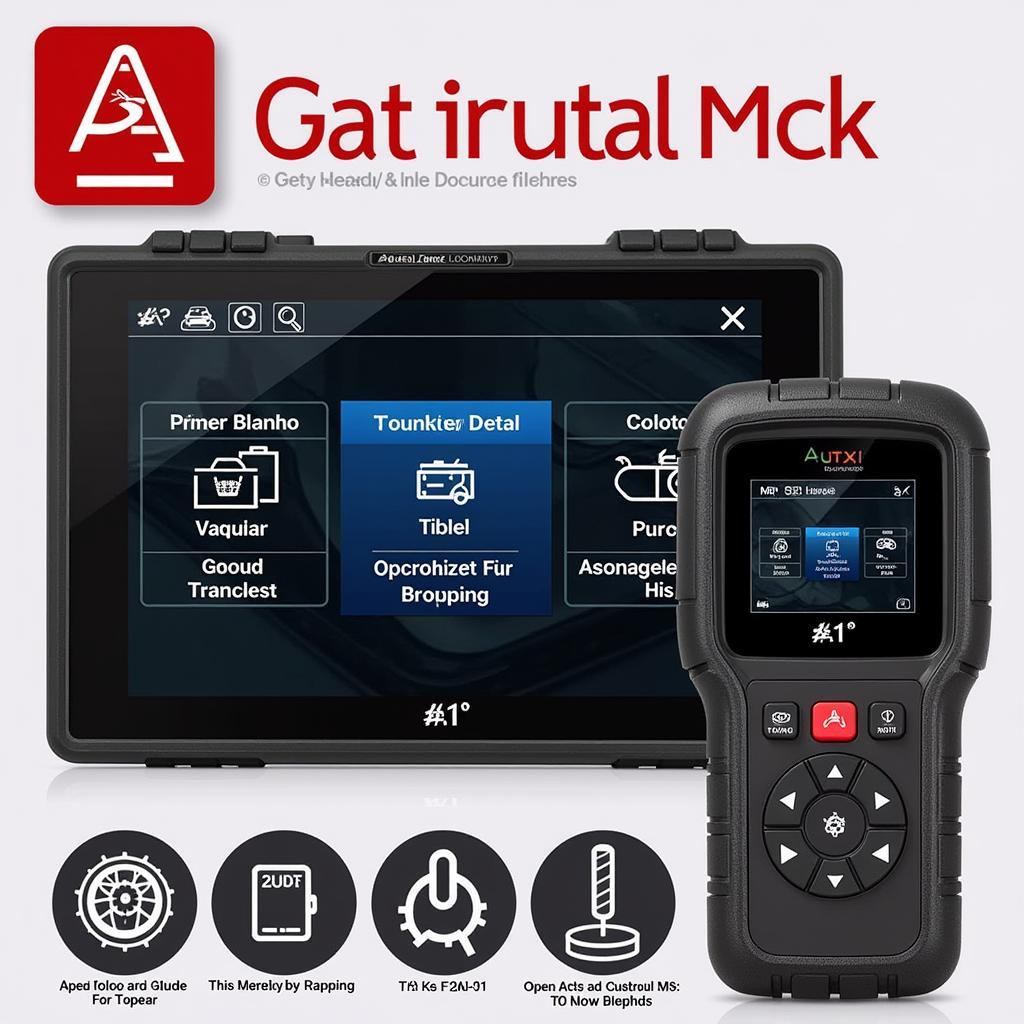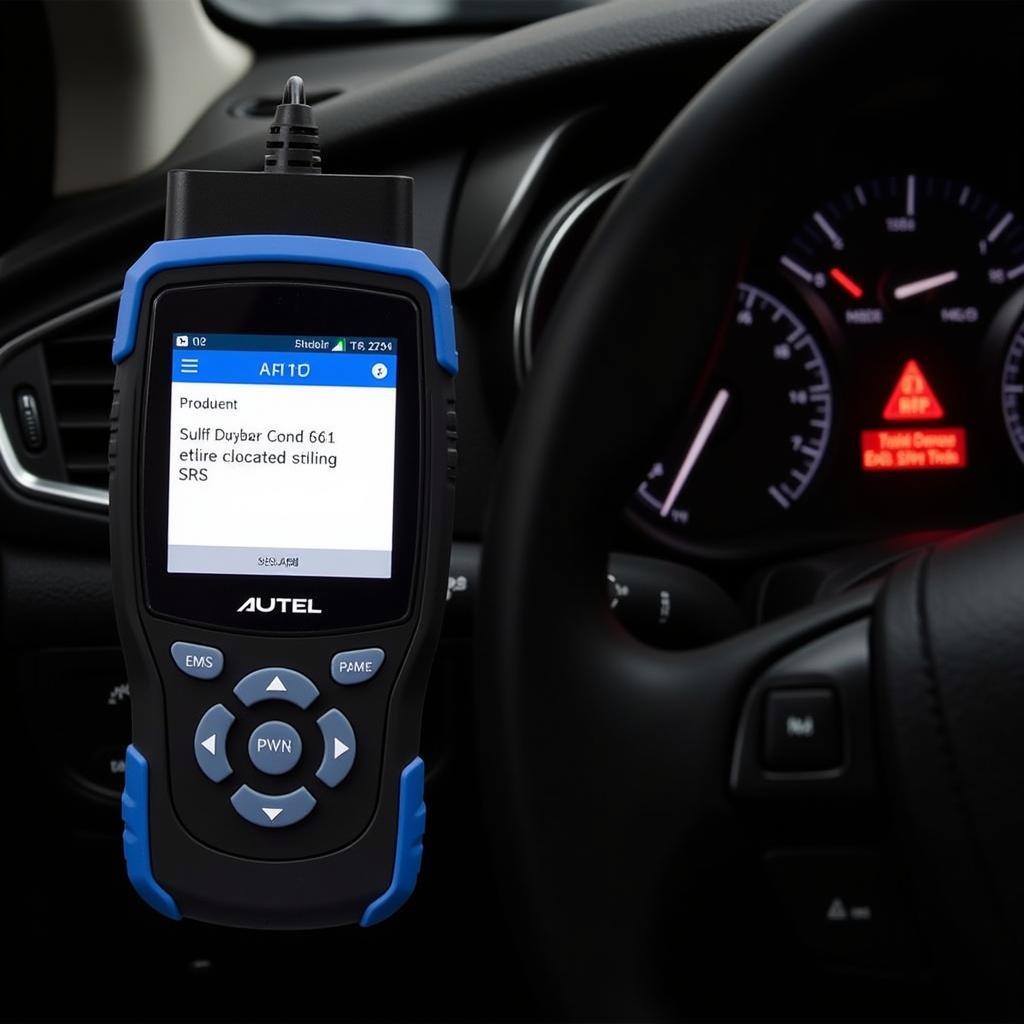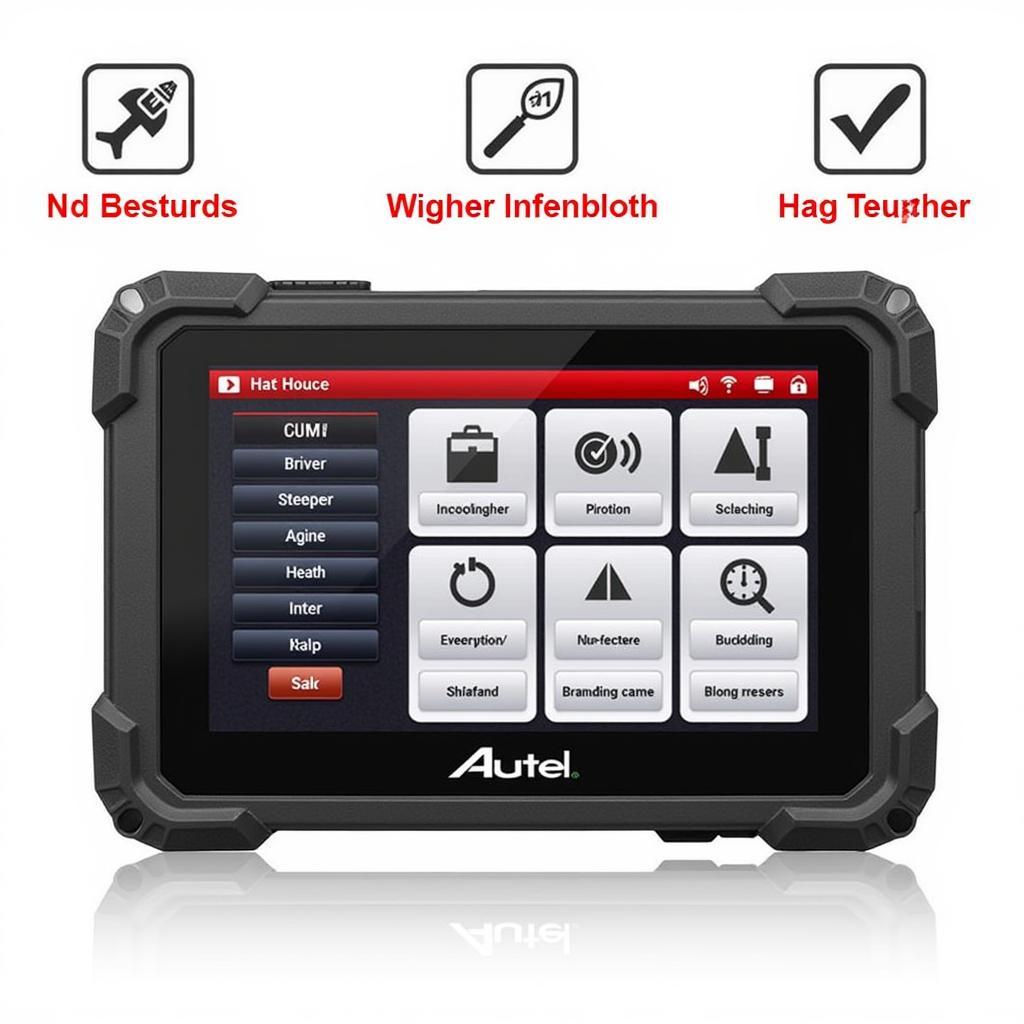You’ve just bought a used car, and you want to make sure it’s in good condition. You’ve heard that an OBD1 scanner can help you diagnose any potential problems, but you’re not sure where to start. You’re wondering, “Can an Autel scanner read OBD1?”
The answer is yes, but it’s not always that simple. This article will delve into the intricacies of Autel OBD1 scanners and provide you with the knowledge to make informed decisions about your vehicle’s diagnostics.
Understanding the Importance of OBD1 Diagnostics
OBD1 stands for On-Board Diagnostics 1, and it was the first generation of vehicle diagnostic systems. OBD1 was introduced in 1991, and it became mandatory for all new vehicles sold in the United States. These systems were revolutionary, enabling technicians to access a wealth of information about the vehicle’s electrical systems and pinpoint problems with greater ease than ever before.
Think of the OBD1 system as a detective investigating your car’s health. It scans for malfunctions and reports any issues it finds through a series of trouble codes. These codes provide valuable insights into what’s going on under the hood, offering clues to solve problems ranging from a simple sensor malfunction to more complex issues.
Autel Scanners and OBD1 Compatibility: What You Need to Know
Autel is a well-respected brand in the automotive diagnostic tools industry. They offer a wide range of scanners, including some that can read OBD1 codes. However, not all Autel scanners are compatible with OBD1.
What to Look for:
- OBD1 Compatibility: Autel scanners that explicitly advertise OBD1 support are the ones you want. Look for features like “OBD1 and OBD2 support” or “Reads OBD1 codes.”
- Model Year: OBD1 was primarily used in vehicles manufactured from 1991 to 1995. Some newer models, even those produced after 1995, might still have OBD1 connectors, depending on the manufacturer. Check your car’s manual for compatibility details.
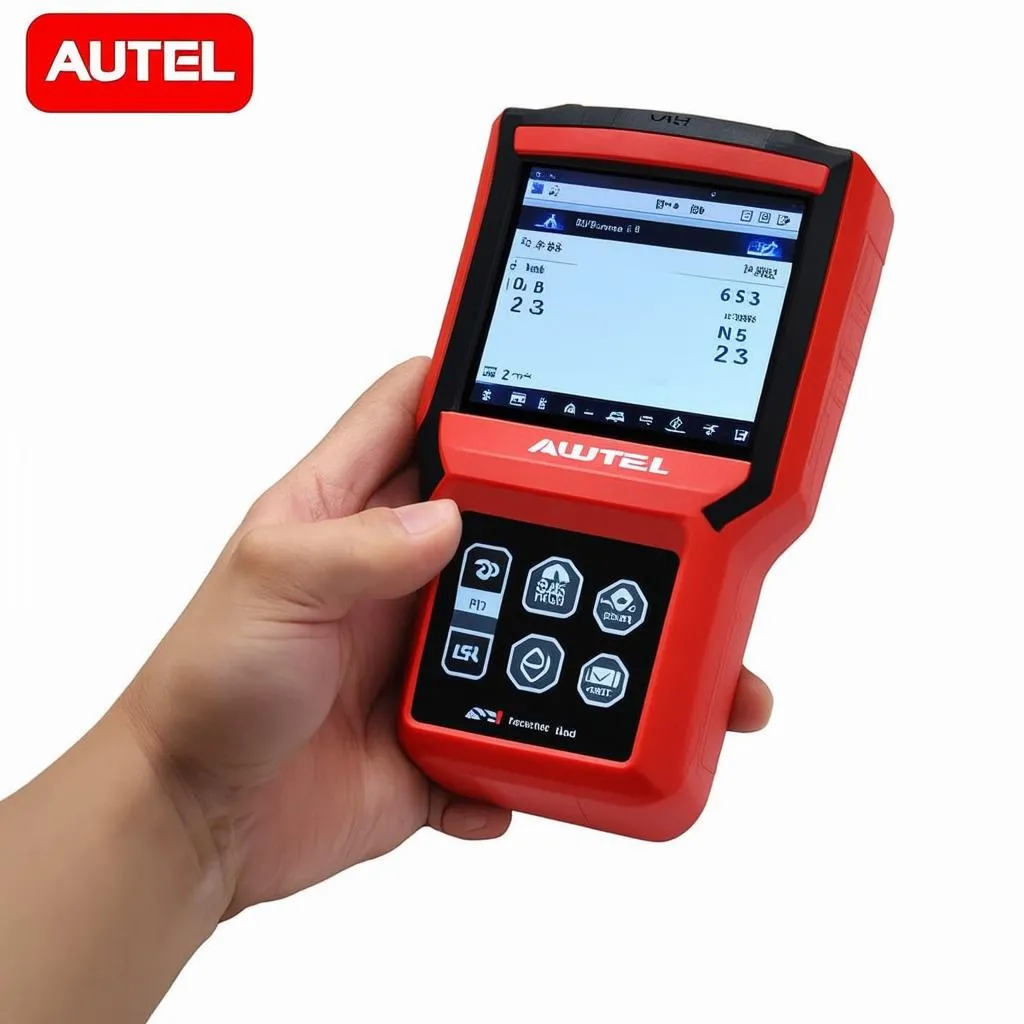 Autel Scanner for OBD1
Autel Scanner for OBD1
How to Read OBD1 Codes:
If you’ve got an Autel scanner with OBD1 capability, the process is straightforward:
- Connect the scanner: Plug the scanner into the DLC (Data Link Connector). This connector is typically located under the dashboard, near the steering column.
- Select OBD1 Mode: Most Autel scanners have a menu option to switch between OBD1 and OBD2 modes.
- Read the codes: The Autel scanner will display the trouble codes. Refer to the manufacturer’s manual or an online database to understand the meanings of the codes and diagnose the issue.
The Limitations of OBD1 Scanners: Know Your Constraints
While OBD1 scanners are a valuable tool for diagnosing older vehicles, they have limitations:
- Limited Data: OBD1 codes provide a basic snapshot of the vehicle’s health, covering engine performance, emissions, and some electrical components. They lack the detailed data found in OBD2, which includes sensor readings, live data streams, and other advanced information.
- Outdated Technology: OBD1 scanners may struggle to read codes from modern vehicles with complex electronic systems and advanced diagnostics.
The Power of Autel: Why Choosing Autel is the Right Choice
For those who need to diagnose older vehicles, Autel scanners provide a valuable solution. Autel is renowned for its user-friendly interface, robust construction, and comprehensive coverage.
Here’s why Autel stands out:
- User-Friendly Interface: Autel scanners are known for their intuitive design, making them easy to use for both professional mechanics and DIY enthusiasts.
- Extensive Coverage: Autel offers a range of models with support for various vehicle makes and models, including European cars.
- Accuracy and Reliability: Autel scanners are designed to provide accurate and reliable diagnostic information, giving you confidence in your findings.
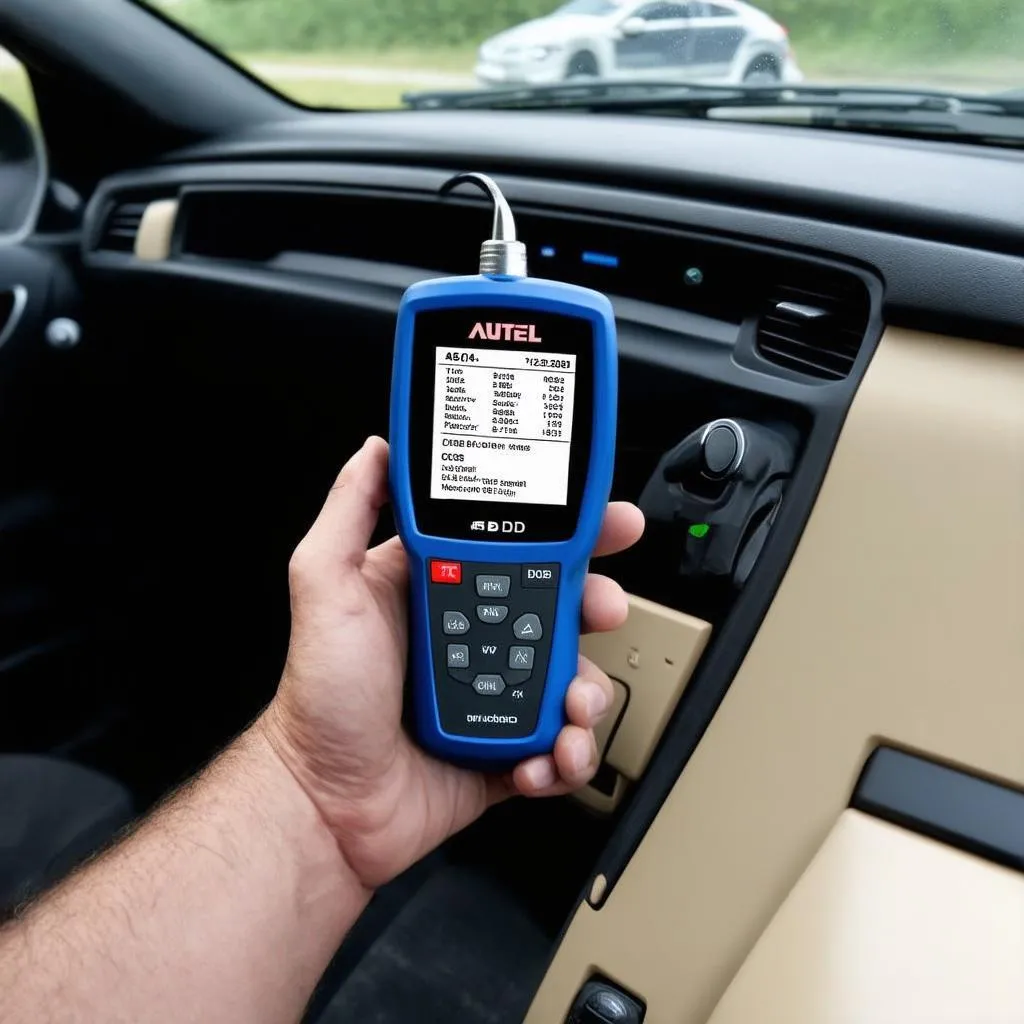 Autel Scanner Reading OBD1 Codes
Autel Scanner Reading OBD1 Codes
FAQs About Autel and OBD1
Q: Can I use an Autel scanner on my newer car?
A: While some Autel scanners offer OBD1 compatibility, they primarily focus on OBD2 and newer diagnostic systems. For modern vehicles, you’ll need an Autel scanner specifically designed for OBD2 and beyond.
Q: Can an Autel scanner access the same data as a dealership scanner?
A: While Autel scanners provide a vast amount of diagnostic information, they may not have the same level of access as dealership scanners, which are specifically programmed for a particular brand of vehicle.
Q: Is it worth buying an Autel scanner for occasional use?
A: If you’re a DIY enthusiast or own older vehicles, an Autel scanner can be a worthwhile investment. It allows you to save money on diagnostics and understand your car’s health better.
Navigating the World of OBD1: Tips for Success
- Read the Manual: Before using any diagnostic tool, consult your vehicle’s owner’s manual for information on OBD1 compatibility and location of the DLC connector.
- Consult a Professional: If you encounter complex issues or are unsure about a diagnosis, it’s always best to consult a certified mechanic.
- Stay Updated: The automotive technology landscape is constantly evolving. Keep abreast of the latest developments in OBD systems and choose a scanner that offers up-to-date features and compatibility.
Conclusion
While OBD1 may be an older technology, understanding it can be essential for those who own older vehicles. Autel scanners offer a powerful and user-friendly way to diagnose and troubleshoot OBD1 issues, providing valuable insights into your car’s health.
Don’t hesitate to contact us at +84767531508 if you need assistance setting up your Autel scanner or have questions about its features. Our team of experts is always ready to help you navigate the world of automotive diagnostics.
Remember, a little knowledge goes a long way, and understanding OBD1 can help you keep your car running smoothly for years to come.
